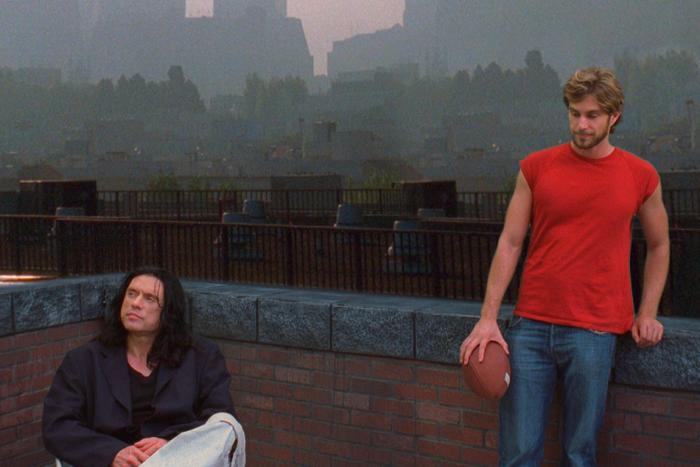Lisa Moore
Author of the novels Alligator, February, and Caught (shortlisted for the 2013 Giller Prize)
Alice Munro has been a huge influence on me as a writer. When I was in my early twenties, I left Newfoundland and followed my husband to Toronto where he was beginning a PhD. It was my plan, while he was off making his way in the world of campus life, to stay behind in an attic room and write story after story. I blame Alice Munro for this plan. I have read her stories for as long as I can remember. I think many short story writers, particularly women short story writers believed they could follow that vocation because of the example Alice Munro had set. I could always tell my mother: Alice Munro does it!
Alice Munro’s prose is deceptively plain-spoken, but the complexity of language creeps up as you read and grabs you by the throat. Take for instance the beginning of the story “Deep-Holes.”
“Sally packed the devilled-eggs—something she hated to take on a picnic, because they were so messy.”
Oh the promise in just that line. Why is Sally bringing something she hates? Whom is she trying to please with these fussy eggs? There is the promise of a picnic, and the hint that things might go wrong. There is the suggestion of devilment. We learn in the same paragraph that Sally is breastfeeding, but willing to drink some champagne. The eggs seem somehow suggestive of motherhood then, and the title “Deep-Holes” vaguely, menacingly feminine, the weird coupling of the hyphen puzzling; there is the hint of something messy and wrong with this family picnic at the outset. Sally’s husband wants to take real champagne glasses, a wedding present, instead of the plastic ones Sally has already packed. She protests. Already the whiff of domestic dissonance, smashed heirlooms, possible disaster. All in a few brief sentences.
I love that Alice Munro’s stories are often confronting, always uncompromising. They often have female protagonists who are breaking stereotypes of all sorts. Munro’s women are not always polite or well-behaved, they are never predictable, they can be devious when following their desires. Munro legitimates female desire, makes it a force with which to be reckoned. Unruly, unrestrained, full-blown desire, whatever the consequences.
Seth
Cartoonist and graphic novelist, author of It's a Good Life if You Don't Weaken, Wimbledon Green, and illustrator of Sunshine Sketches of a Little Town
I couldn’t be happier about the Nobel Prize. It’s a wonderful crown for a brilliant career that is now finished (if we are to believe Alice Munro, and I guess we must).
I was asked to write a little something in tribute because it was understood that I deeply love her work (like everyone else) and have been influenced by it. I certainly do love the work but I don’t think I’d be so presumptuous to claim influence. I’m not even sure one can be “influenced” by Alice Munro. Can one be influenced by brilliant insight or clarity of human understanding, or genius for capturing the feeling of being alive?
It’s certainly easy enough to be influenced by the drawing of another artist. You study how they compose a picture, pick apart their technique, cop a few “licks” from their style. I’ve done plenty of that over the years. I suppose you can do that with writers as well. Pick apart their prose. Rip off some stylist tricks.
You could try that with Munro too, I guess. Try to dissect her technique. I’ve never tried it myself. It seems pointless. I suspect if I did so I’d only be left with the dead carcass. The spirit of the work is ephemeral. There is some magic there that can’t be appropriated by another writer.
After hearing about the Nobel Prize this morning I randomly pulled down one of her books from the shelf (Open Secrets) and read the first story in it (“Carried Away”).
When I finished it I shut the book and put it back again with that intense feeling I almost always feel when I’ve read something by her. A sensation very hard to nail down. A feeling as if you have been in deep, empathetic contact with someone. The recognition of that plodding melancholy rhythm of interior life that is always somewhat sad and solitary but not depressing. She is so wonderfully unsentimental, yet filled with so much love and understanding.
I feel lucky to have to have been born in southwestern Ontario at just the tail-end of the era she writes about, allowing me to intimately relate to the places and people of her stories. Unlike so much of the world’s great literature—for once, I don’t have to guess what it feels like to be a Russian or a Londoner or even a New Yorker. When I am reading an Alice Munro story I know just where I am and who these people are.
I’m not reducing this down to some petty regional identification thing. What I’m trying to say is I feel privileged to be in the “know” while reading such works of genius. To have just a little more right to possess these stories than someone from further away. Another excuse to claim her for my own. She gives us roots in a way that no other Canadian author does. Not history, but some deeper connection to place and time.
Grace O'Connell
Author of the novel Magnified World
When I was about 15, I checked a somewhat limp paperback copy of Open Secrets out of the Mississauga public library. I had no idea who Alice Munro was, but I thought it sounded pretty good. I didn’t end up reading the book though—instead I devoured it. My reaction went beyond enjoyment; it was more like awe, an almost fearful realization of how big, how true writing could be. Truer, in a strange alchemical way, than life. It was like stretching after a workout; the reading was so good it almost hurt.
More than 10 years later, I was in a bar in Toronto giving a public reading. It wasn’t my own work I was reading though. It was Munro’s; her first published story, to be exact, which appeared when she was just 19. I was one of many readers around the world reading the same piece at the same time to celebrate the story’s re-publication in a literary journal called Her Royal Majesty. I had practiced at home out loud, each time a little more humbled and amazed by how good, how creative, how controlled the story was.
But slipping into her words publicly was even better than I expected. As I leaned into the mic, I couldn’t help but think of being 15 and that moment of realization about what fiction could do. For a few minutes, I was Alice Munro: her words in my mouth. There’s a bravery in Munro’s stories, a willingness to leave things unsaid, to nakedly long for things and people and knowledge, even when the longings may be contradictory or unfair—just like life.
To occupy that voice, even briefly, was a direct injection of literary courage. And the best part is I can go back there any time I want, simply by reading Munro.
Claire Battershill
Winner of the 2008 CBC Literary Award for Short Fiction and author of the upcoming collection Circus (April 2014)
What you’re reading, Alice Munro writes, in A View from Castle Rock, is “like a constant other room you go into besides the room you’re living in.” I first visited Munro’s rooms as a teenager, beginning with my mother’s copies of The Lives of Girls and Women. Later, I stood reading The Moons of Jupiter for far too long beside the dark wood shelves of Munro’s Books in Victoria, beneath the summer sky quilt that decorates the fiction section. They were for me, as for so many other writers of this genre, the first short stories I truly loved. She is not only the master of the form that she is recognized to be, but she writes with an intimacy and delicacy that makes all of her work feel hospitable, familiar, but resonant with an endless, singing promise. No Munro character is ever feeling just one thing—I think of the boy in “Face” whose birthmark makes him both hyper-aware of himself and astonishingly, almost artfully oblivious. Or Carla in “Runaway,” who worries deeply about her lost goat and contemplates the interior design of mobile homes as she carries on making her husband’s tea. Munro’s stories, above all, demand and repay re-reading: they extend that invitation, which only the best writing can, to unpack your things and stay.
Anne Michaels
Poet and novelist, author of Fugitive Pieces and Correspondences (a collaboration with artist Bernice Eisenstein)
Women writers of a certain age know—especially, intimately—just how important Alice Munro’s influence has been. In writing about women’s lives, Canadian women’s lives, she writes necessarily and, with equal compassion and acuity, about men’s lives. Alice Munro, along with Mavis Gallant, cut a path for Canadian women writers—in subject matter as well as in their fidelity to the short story form—that was radical. Alice Munro understood right from the start that the heart is the heart of a place, and made no apology for her settings. It bears reminding young writers how spectacular an achievement it was for women to write women’s lives in this way.
It also bears saying that although women have long been raising children and writing, Alice Munro has always told the truth about how difficult this is and always will be; and she refused to let this admission diminish her or her work, or ghettoize her worth. She can recall when a story was written by the ages her children were when she wrote it. The challenge of balancing motherhood and writing is profound because the complexities are profound. It is not merely a question of time, though time is a large part of the equation; it is a question of complexities that, in a way, Alice Munro has been illustrating all her writing life. These intricacies, these complications have more to do with mortality than with politics. And it is this understanding that prevents Alice Munro’s work from ever being segregated as “women’s work.” Mortality, parents and children, love and loneliness, youth and aging—this has been Munro’s territory all her writing life. She has chosen the small detail, the single gesture, the short story, to prove—over and again—that there is nothing so large as the span of a human life.
Aislinn Hunter
Poet and novelist, author of Stay and forthcoming The World Before Us (May 2014)
The beauty of the Alice Munro story for me has always been not knowing what waits around the corner, what will happen in the next sentence or on the next page. The world of a Munro story is simultaneously ordinary and extraordinary, typical yet unexpected. The kind of writing that comes, I think, from a combination of keen observation and wild—and willful—imagining. I remember once, having the good fortune to drive Alice around Vancouver on an afternoon outing. We compared the Brontë sisters and talked about character and place and I (as usual) said that I thought place was more important than character because place makes you who you are. What I have always loved in Alice’s books is that place “makes” people but that they also live so deeply (and convincingly) in her stories that they transcend the place they live in. Her Ontario settings have a particularity and a universality that makes her work come alive no matter where it’s read. So this is something she’s taught me: that place informs the individual but it does not set the limit.
There are so many things that a writer can learn from an Alice Munro story. (I regularly teach her work in my third and fourth year creative writing classes so I can say this with some authority.) But one of the things that I have learned from her is less craft-oriented than that kind of approach—it’s that fiction is hard work; that it demands something of the writer. Driving back to our hotel in Bordeaux this evening I received a text from my mother asking me if I was excited that Alice had won the Nobel Prize. It was the first I’d heard of it and I was overcome with happiness—for her and, I suppose, for all of us writing in Canada—that fiction of such consistent excellence and depth and humility should be so rewarded. But then I thought about all the effort she’s put into it, how very hard writing of her calibre is, and I was left with a sense of gratitude, for all that she’s put into the work, for her energy and attention, and for the wonder of her characters and the vitality of their world.
Trevor Cole
Author of The Fearsome Particles and Practical Jean
I was struck yesterday by two godawful attempts to satirize Munro in the wake of her Nobel win. The Washington Post wrote a piece based on the question of what the coverage of Munro’s victory would sound like were she a citizen of, say, China or Russia. They called her a “dissident writer” who wrote fiction “critical of the Canadian regime” and hoped that more of her work would be translated into English. It was all very strained and unfortunate.
Even worse was a piece by The Onion. That website gets the tone right more often than not, but in this case they thought it would be funny to portray Munro as suffering from a mental disability. “Nobbel Prise such good,” they had the fictional Munro write. “Is best most good most shine prise for littersure.” It went on like that for quite some length, I’m sorry to say.
Inherent in both of these wide misses seems to be the admission that Munro’s work is actually beyond satire. That her narrative voice, so direct and clear and unadorned, and her characters, so like ourselves, build a fiction that lies tight against the skin and leaves nothing for the satirist to grab onto. The only hope, they seemed to believe, lay in swinging wildly at whatever might be around Munro—her Canadianness, or the idea of literature itself—and hoping for the best.
Sometimes, as a satirist, you have to know when you’re beaten.
Anna Quindlen
Author of Lots of Candles, Plenty of Cake
Why did I weep when I heard Alice Munro had won the Nobel? It was not only that she is a woman whose work plumbs the inner life of other women, or that she has spoken of writing when her children were napping or at school, which has given hope to writer-mothers everywhere.
It was the notion that it is still possible to rise in the profession by virtue of producing prose of honesty and humanity without bells and whistles. Munro is a brilliant miniaturist, a prose poet in the economy of her expression and the precision of her observations. “She is our Chekhov,” Cynthia Ozick once said, correctly.





